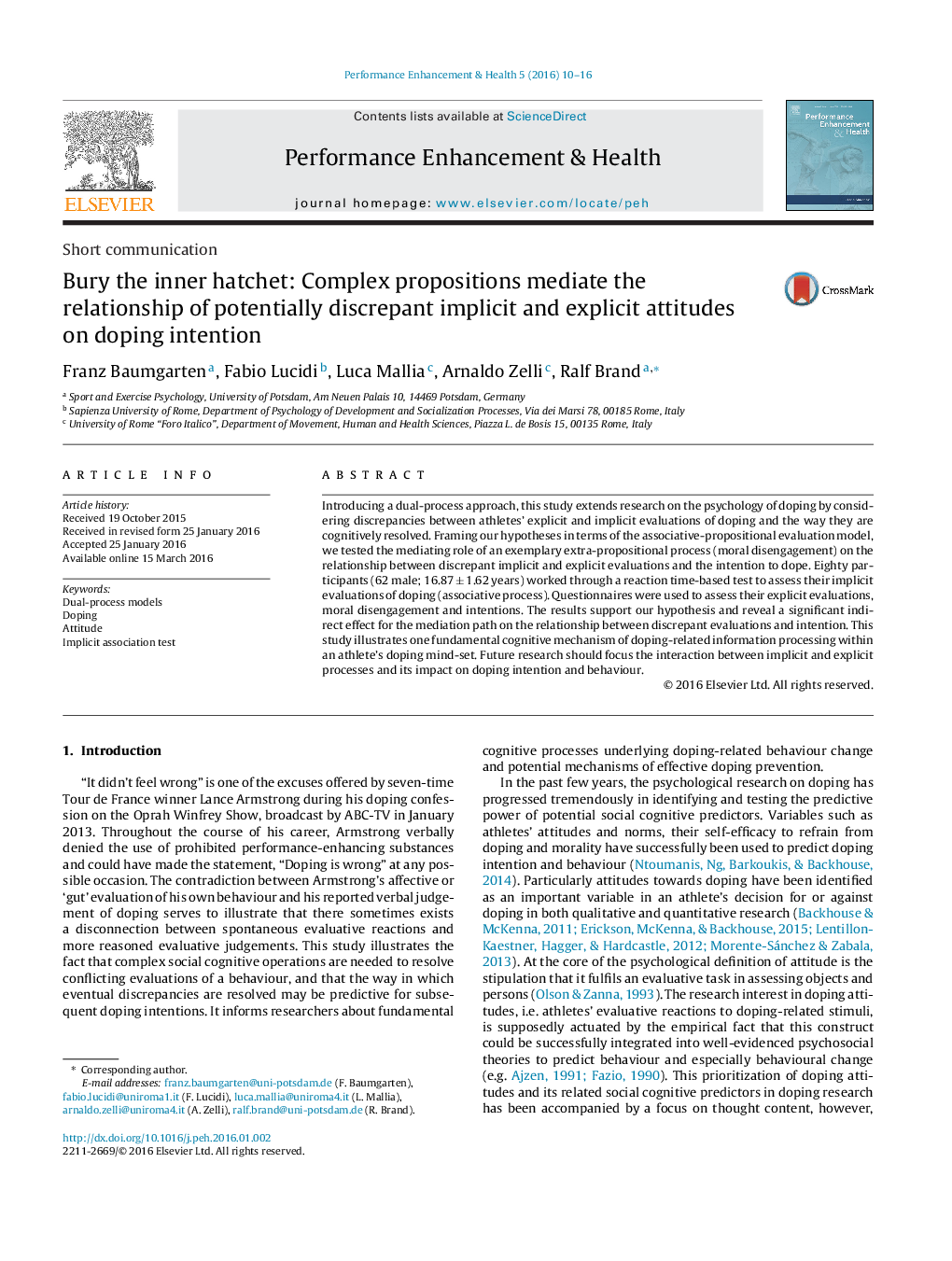| Article ID | Journal | Published Year | Pages | File Type |
|---|---|---|---|---|
| 889514 | Performance Enhancement & Health | 2016 | 7 Pages |
•Dual process theories of information processing are applied to the psychological research on doping.•The interaction of two different kinds of evaluations.•Discrepancies combines direct and indirect attitude measures.•Moral disengagement mediates the effect of evaluative discrepancies on intentions to dope.•A cognitive mechanism of doping-related information processing is illustrated.
Introducing a dual-process approach, this study extends research on the psychology of doping by considering discrepancies between athletes’ explicit and implicit evaluations of doping and the way they are cognitively resolved. Framing our hypotheses in terms of the associative-propositional evaluation model, we tested the mediating role of an exemplary extra-propositional process (moral disengagement) on the relationship between discrepant implicit and explicit evaluations and the intention to dope. Eighty participants (62 male; 16.87 ± 1.62 years) worked through a reaction time-based test to assess their implicit evaluations of doping (associative process). Questionnaires were used to assess their explicit evaluations, moral disengagement and intentions. The results support our hypothesis and reveal a significant indirect effect for the mediation path on the relationship between discrepant evaluations and intention. This study illustrates one fundamental cognitive mechanism of doping-related information processing within an athlete's doping mind-set. Future research should focus the interaction between implicit and explicit processes and its impact on doping intention and behaviour.
